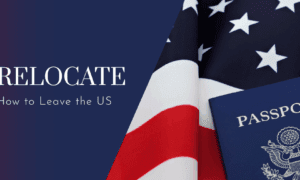Relocating to a new home can be an exciting chapter in life, but it’s one of the most expensive undertakings a household can face. From packing supplies and transport fees to temporary accommodations and hidden charges, costs can add up quickly if not managed carefully.
Fortunately, with thoughtful planning and smart choices, you can move smoothly without draining your savings. Here are some practical ways to keep relocation expenses under control while ensuring a stress-free experience.
Choose the Right Moving Company
Hiring professional movers is often the largest single expense of a relocation, which is why making the right choice is crucial. It’s tempting to go for the cheapest quote, but this can sometimes lead to hidden fees or unreliable service that costs more in the long run. Taking the time to research and compare providers ensures that you get both value and peace of mind. For international relocations, working with a reliable removals company to Australia or your chosen destination can make a significant difference. Professional companies with proven track records provide clear pricing, insurance options, and efficient logistics, helping you avoid surprise costs and unnecessary delays. By prioritizing reliability over the lowest initial price, you reduce the risk of overspending due to mistakes or damage during transit.
Declutter Before You Pack
One of the simplest ways to cut moving costs is to reduce the volume of items you take with you. Moving companies typically charge based on weight or space, so the fewer belongings you transport, the lower your bill will be. Decluttering means less time spent packing, unpacking, and organizing at your new location.
Start by sorting through each room and asking yourself whether items are worth the expense of moving. Clothing you no longer wear, duplicate appliances, or furniture that won’t fit your new space can be sold, donated, or recycled. Holding a garage sale or selling online can even generate extra cash to offset moving expenses. By taking only what you truly need, you simplify your move and protect your budget.
Plan and Budget in Advance
Relocations are full of both expected and unexpected expenses. Creating a detailed budget before you start the process helps you avoid financial surprises. List all potential costs, including moving services, packing supplies, storage, travel expenses, temporary housing, and utility setup fees. Be sure to set aside a contingency fund for emergencies or last-minute needs.
Planning involves booking services early. Many moving companies offer discounts for advance reservations, while flights and accommodations tend to get more expensive closer to the moving date. By securing arrangements ahead of time, you can lock in lower prices and avoid the stress of last-minute scrambling.
Use Smart Packing Strategies
Buying brand-new packing supplies can add hundreds of dollars to your moving costs. Instead, look for free or low-cost alternatives. Grocery stores, bookshops, and community boards often offer sturdy boxes at no charge. Suitcases, laundry baskets, and even dresser drawers can double as containers, reducing the need for additional boxes.
When packing, be strategic about protecting fragile items. Using towels, blankets, or clothing instead of bubble wrap saves money and space while keeping your belongings safe. Labeling boxes clearly saves time during unpacking, reducing the likelihood of lost or broken items that might require replacement.
Avoid Overlapping Expenses
One of the hidden costs of relocation is paying for two households at once. Overlapping rent, utility bills, or mortgage payments can strain your budget if not carefully timed. To avoid this, coordinate your moving schedule so that your departure and arrival dates align as closely as possible.
Notify utility companies well in advance to ensure services are disconnected at your old home and activated at your new one on the correct dates. Cancel or transfer subscriptions, internet services, and local memberships to avoid paying for services you no longer use. Careful scheduling can prevent weeks of double expenses and free up funds for more pressing needs.
Take Advantage of Employer or Tax Benefits
If you’re relocating for work, check whether your employer offers financial assistance. Many companies provide relocation packages that cover moving services, temporary housing, or travel costs. Even partial reimbursement can make a significant difference in keeping expenses manageable.
Some moving expenses may qualify for tax deductions, depending on your country’s laws and your employment situation. Consulting a financial advisor or researching government guidelines can help you identify potential savings opportunities. Taking advantage of available benefits ensures you don’t leave money on the table during the moving process.

Relocating doesn’t have to drain your finances. By working with a reliable removals company, decluttering before you pack, planning ahead, using smart packing strategies, avoiding overlapping expenses, and exploring employer or tax benefits, you can save both money and stress.
With careful preparation and the right decisions, your move can be smooth, efficient, and affordable, allowing you to focus on settling into your new home and embracing the opportunities ahead.

































